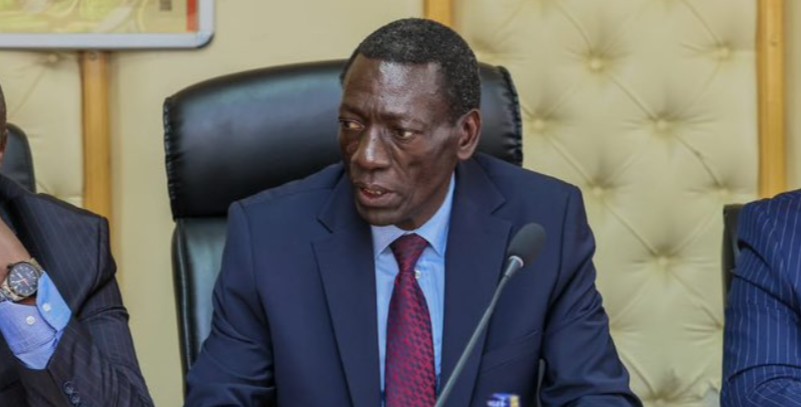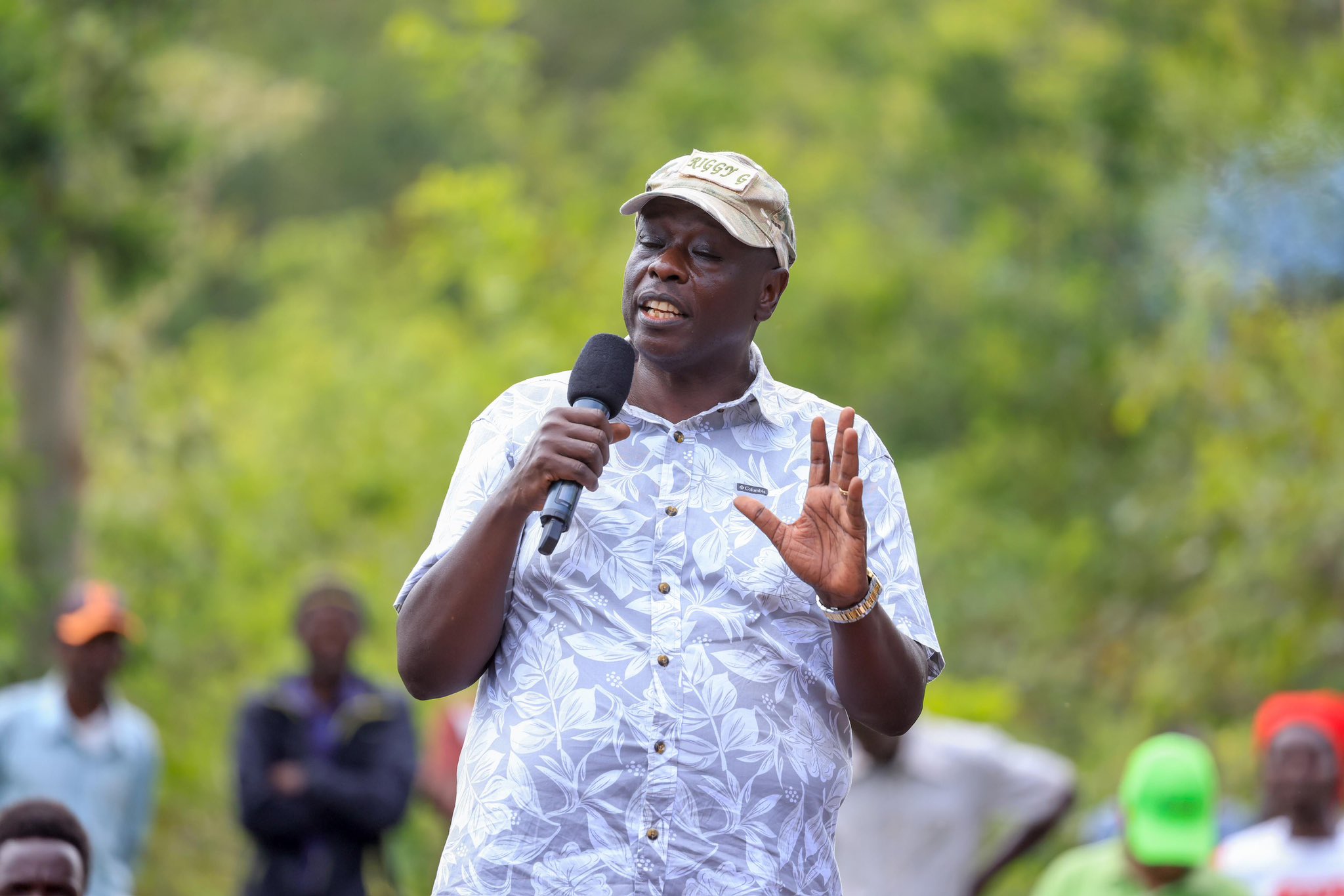Teachers demand immediate reinstatement of Sh62bn education budget cut, warn of sector crisis

Knut boss Oyuu warned that education reforms underway, particularly the transition to the Competency Based Education, risk collapsing without adequate financial support.
Teachers have demanded the immediate restoration of Sh62 billion slashed from the Ministry of Education’s budget in the 2025/2026 financial year estimates, warning that the funding cut will cripple crucial programmes.
The Kenya National Union of Teachers (Knut) has said that the reduction threatens to disrupt national examinations, stall education reforms, and derail the overall delivery of learning services across the country.
More To Read
- Teachers to stay in same schools after promotions under new TSC policy
- TSC announces recruitment of 9,159 teachers nationwide
- Unions slam TSC over limited promotion slots as 131,000 teachers apply for 21,000 positions
- Tension mounts as school heads, teachers’ union reject new TSC leadership structure
- Over 44,000 schools cleared for capitation as audit uncovers 87,000 ghost learners
- Government urged to fast-track transition of basic education institutions to comprehensive schools
Knut Secretary-General Collins Oyuu urged legislators to take immediate action and reverse the cut, saying education must be prioritised in national funding due to its central role in socio-economic development.
“Education is the pillar of development in the country, and the ministry requires all the money it can possibly get. We are appealing to Parliament and to the executive arm of the government to review the proposed budgetary allocation,” Oyuu said.
He raised the alarm over the exclusion of examination and invigilation funds from the estimates, a move he termed as unprecedented.
“Money meant for examinations and invigilation has been removed from the budget estimates. This has never happened. We are hopeful that the money, which was omitted, will be reinstated,” he added.
Oyuu made the remarks at Olereko village in Kilgoris Constituency, Narok County, during the burial of Knut Rift Valley Council Chairman John Sampoti Musere, who died following a long illness.
He warned that education reforms underway, particularly the transition to the Competency Based Education (CBE), risk collapsing without adequate financial support.
“Education affects all facets of the socio-economic and political fabric, thus the need to give it priority in funding. The success or failure of a country is hinged on how seriously a government takes education. We are confident that the President will step in and restore the funding,” Oyuu said.
Knut National Chairman Kamau Karinga, First National Vice Chairman Malel Langat, First National Woman Representative Mercy Ndung’u, National Trustee Boniface Tenai, and National Executive Committee members Richard Lentayaa, Alice Bor, and Sammy Bor echoed Oyuu’s concerns and backed the union’s call for the funds to be reinstated.
Meanwhile, the Kenya Union of Special Needs Education Teachers (Kusnet) and the Special Schools Association of Kenya (SHAC) have warned that more than 2,000 special schools are at risk of shutting down in the next two weeks due to delays in the disbursement of capitation funds.
Kusnet Secretary-General James Torome said the delay has severely affected learning in special schools, primary and secondary institutions across the country. He warned that the cutback in funding, coupled with late disbursement of already approved capitation, has created a crisis that could erase years of progress in special needs education.
Addressing the press in Naivasha after a consultative meeting, Torome said the union had met with officials from the Ministry of Education’s Directorate and reached an agreement that the pending funds must be released without delay.
“We have engaged on several issues affecting learners with a disability, and we have agreed unanimously that those funds be channelled to schools in good time,” he said.
He warned that the Sh62 billion budget cut could worsen the situation and plunge the education sector into chaos.
“As a union, we are warning the government that the budget cuts in the Ministry of Education are going to jeopardise everything, and it will be a total crisis in this country,” Torome said.
Flanked by SHAC officials, he also cautioned politicians against interfering with matters of teachers’ welfare, including hardship allowances, which he said had already been negotiated, signed, and deposited in court as part of the 2021-2025 Collective Bargaining Agreement (CBA).
“We are asking the Teacher Service Commission to move with speed and call the unions before the expiration of the 2021–2025 CBA so that before the budget is ready, we have signed the new CBA,” Torome said.
Kusnet National Chairman Peter Sitienei said delayed grants and capitation remain the biggest challenge for special schools, many of which have been unable to pay non-teaching staff or clear pending bills with suppliers, some of whom have now withdrawn their services.
“We have a very big challenge to address learners with special needs because we’ve not paid the salaries for the non-teaching staff and, of course, the suppliers,” he said.
Sitienei, however, welcomed the recent move to include special needs learners in bursary programmes, saying it was a step in the right direction despite the ongoing funding constraints.
Cut made in a rush
Appearing before the National Assembly Committee on Education chaired by Tinderet MP Julius Melly, Basic Education Principal Secretary Julius Bitok explained that the Sh62 billion cut was made by a National Treasury official in a rush to meet a Cabinet submission deadline.
According to Bitok, critical components of the education budget were left out, including Sh12.5 billion for examinations and invigilation, Sh1.8 billion for free primary education, and Sh21.85 billion for free day secondary school capitation.
He said the cuts would severely impact the administration of the Kenya Primary School Education Assessment (KPSEA), the Kenya Junior School Education Assessment (KJSEA), and the Kenya Certificate of Secondary Education (KCSE) exams.
Also left out of the budget were Sh18.8 billion in capitation for junior schools and Sh4.2 billion for the school feeding programme. No allocation was made for quality assurance.
Despite the slashes, the TSC was allocated Sh387.7 billion, which includes funds for the employment of 24,000 teachers in January 2026.
President Ruto recently said the government has hired 76,000 teachers over the last two years, the highest recruitment in the history of the education sector. He assured trained but long-unemployed P1 teachers, many of whom have waited up to 20 years and are now over 45 years old, that they will be prioritised in the upcoming recruitment.
Education Cabinet Secretary Julius Ogamba has disclosed that Kenya has 343,485 trained but unemployed teachers, including 124,061 qualified for primary schools.
Outgoing TSC Chief Executive Officer Nancy Macharia said the public education system is currently facing a shortage of 98,261 teachers, with 229,410 registered by the commission in the past decade.
Top Stories Today














































